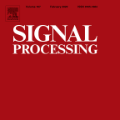Diffusion models are a class of deep generative models that have shown impressive results on various tasks with dense theoretical founding. Although diffusion models have achieved impressive quality and diversity of sample synthesis than other state-of-the-art models, they still suffer from costly sampling procedure and sub-optimal likelihood estimation. Recent studies have shown great enthusiasm on improving the performance of diffusion model. In this article, we present a first comprehensive review of existing variants of the diffusion models. Specifically, we provide a first taxonomy of diffusion models and categorize them variants to three types, namely sampling-acceleration enhancement, likelihood-maximization enhancement and data-generalization enhancement. We also introduce in detail other five generative models (i.e., variational autoencoders, generative adversarial networks, normalizing flow, autoregressive models, and energy-based models), and clarify the connections between diffusion models and these generative models. Then we make a thorough investigation into the applications of diffusion models, including computer vision, natural language processing, waveform signal processing, multi-modal modeling, molecular graph generation, time series modeling, and adversarial purification. Furthermore, we propose new perspectives pertaining to the development of this generative model.
翻译:扩散模型是一种深层次的基因化模型,在理论基础密集的情况下,在各种任务上取得了令人印象深刻的成果。虽然传播模型比其他最先进的模型取得了令人印象深刻的质量和多样性的样本合成,但它们仍然受到昂贵的取样程序和亚最佳可能性估计的影响。最近的研究显示,对改进传播模型的性能表现出极大的热情。在本条中,我们首次全面审查了传播模型的现有变体。具体地说,我们提供了传播模型的首次分类,并将这些变体分为三类,即:抽样加速增强、概率最大化增强和数据通用增强。我们还详细采用了其他五种基因化模型(即变异自动组、基因化对抗网络、正常流动、自动递减模型和能源模型),并澄清了传播模型与这些变异模型之间的联系。我们随后对传播模型的应用进行了彻底调查,包括计算机视觉、自然语言处理、波变信号处理、多模式模型化处理、分子图生成、时间序列模型生成和对抗性模型。此外,我们提出了这一与基因模型相关的新模型和对抗性净化观点。





